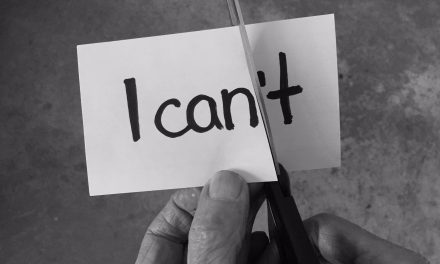Self-soothing and emotional self-regulation are not born within us nor come automatically later in life. Children are completely dependent upon external sources for their soothing and regulating. Things like pacifiers, blankets, stuffed animals are used before they can develop the internal skills. Since the ability to self-regulate is not possible, they need others to co-regulate their emotions, i.e., like how a mother rocks/bounces a baby or sings to it.
As children progress in age, emotions become bigger and they still have very limited ability to those parts of the brain that help regulate and rationalize emotions (left brain functions). This is where, as parents, modeling self-regulation is key. Since the first language we learn in childhood is non-verbal, observing our parents and mimicking what they do is how we learn to walk and talk – It is also how we learn to manage our emotions. A well regulated and calm parent can better help a distressed child, but if we are dysregulated ourselves it further dysregulates the child.
Parents teach self regulation skills through modelling behaviour and their own self-talk (be it positive or negative). When we make a mistake are we prone to say such things as “I’m such an idiot!” or do we perhaps yell and swear when we’re upset?
Some things to try
- When you are frustrated and emotions are escalating, use positive self-talk out loud where your child can hear.
- Start taking deep breaths and explain afterward why you were doing that.
- When your child is distressed, mirror back what you hear from them using the word you. “you’re so sad because you can’t buy this toy”. “You really don’t want to go to school today”. Instead of trying to change the emotion they’re feeling, you are validating it, which helps to deactivate the stress response system in the brain. This is not a quick fix but is a process akin to sitting with them, and going through the emotion. This teaches emotional tolerance instead of avoidance.
Every time you successfully co-regulate your child, their brain receives an emotional hit or reward, producing feel good chemicals. Chemicals like opioids, endorphins and oxytocin which encourage growth of nerve cells and the connection between them. You quite literally are helping their brain to grow. These chemicals mimic that of those as street drugs and other unhealthy ways we receive these emotional hits/chemicals (food, sex, power, alcohol, smoking, caffeine etc.) where no skills are involved.
The brain does not want to be in distressed mode and always looks for the quick fix – i.e., immediate relief. When it finds something that works, it is stored in a brain pathway and is remembered for next time. If we teach and model these skills when they’re young and give them the emotional rewards from connecting with them in their emotions, then our children will not become adults who are reward-hungry, seeking things outside of themselves in order to cope.
Warm Regards,
Oriana
xo
Keep healing, keep growing, keep finding your truth.









Recent Comments